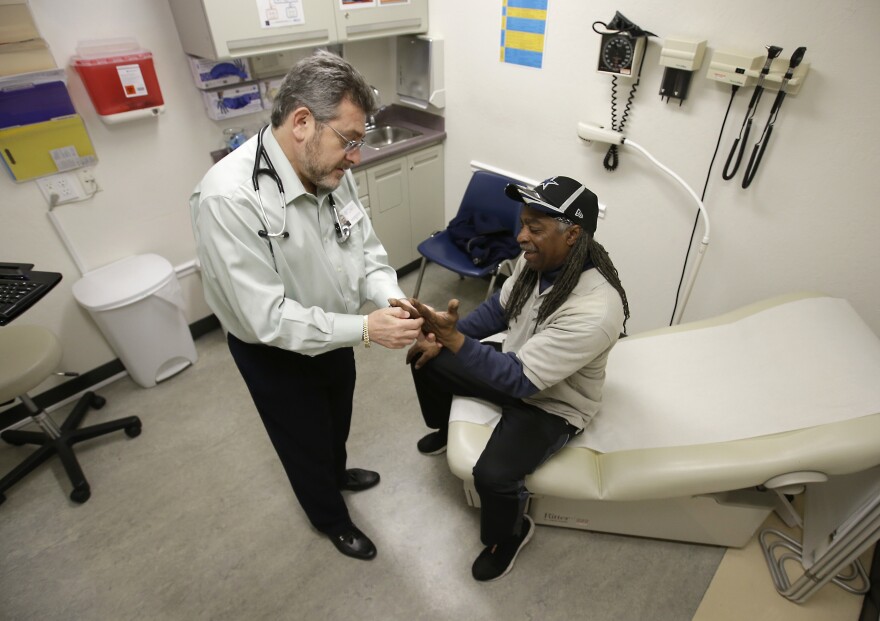This story is free to read because readers choose to support LAist. If you find value in independent local reporting, make a donation to power our newsroom today.
This archival content was originally written for and published on KPCC.org. Keep in mind that links and images may no longer work — and references may be outdated.
Senate GOP health bill sparks worries about California's gains

Consumer advocates, state politicians and members of the health industry are worried about how the Senate GOP health bill released Thursday might affect California. The plan cuts most taxes associated with the Affordable Care Act and rolls back a lot of federal funding.
"What it proposes is just an enormous step backward," says Amy Adams, senior program officer for the California Health Care Foundation.
Adams and other health care experts foresee California losing some of the coverage gains the state made under the Affordable Care Act if the Senate bill becomes law.
Under Obamacare, California has cut its uninsured rate in half, from 17.2 percent in 2013 to 7.4 percent in 2016.
"California has made the most progress under Obamacare. So, we have the most to lose," says Daniel Zingale, senior vice president of the California Endowment.
The Senate plan proposes cuts to federal subsidies that help Californians who get insurance through Covered California pay their premiums and their out-of-pocket health expenses.
The measure also proposes deep cuts to Medicaid, known as Medi-Cal in California.
Obamacare’s Medicaid expansion, which added 3.7 million Californians to the rolls of Medi-Cal, would be phased out by 2024. Roughly one in three Californians is on the program.
Under the bill, the expansion of coverage would end by 2024, spending growth for the program would be limited and Washington would change its funding formula to a per capita or block grant approach.
"Now the federal government is saying, 'We’re going to determine how much we’ll contribute regardless of what it really costs. And good luck to the states,'" says John Baackes, CEO of LA Care Health Plan, which covers two million Angelenos on Medi-Cal.
"Essentially what the federal government [wants] to do is ... pass on the cost to the state of California," says State Senate Health Committee Chair Ed Hernandez (D-Azusa).
"Basically, anything that would not be nailed down would be at risk, including prescription drug coverage, including fairly basic services for seniors, for children, for other populations," says Anthony Wright, executive director of the health advocacy group Health Access. "It is a stunning level of cuts that we’re talking about here."
Reduced federal support for Medi-Cal could force the state to lower the reimbursement rates paid to health care providers in the program, says Baackes. California’s rates are already some of the lowest.
"That’s what scares me, because I think providers at some point will say, 'Enough already! I cannot participate in Medicaid anymore,'" he says.
The Congressional Budget Office must now produce an analysis of the Senate bill. Its prior analysis of the bill passed by the House estimated a $24 billion hit to California.







